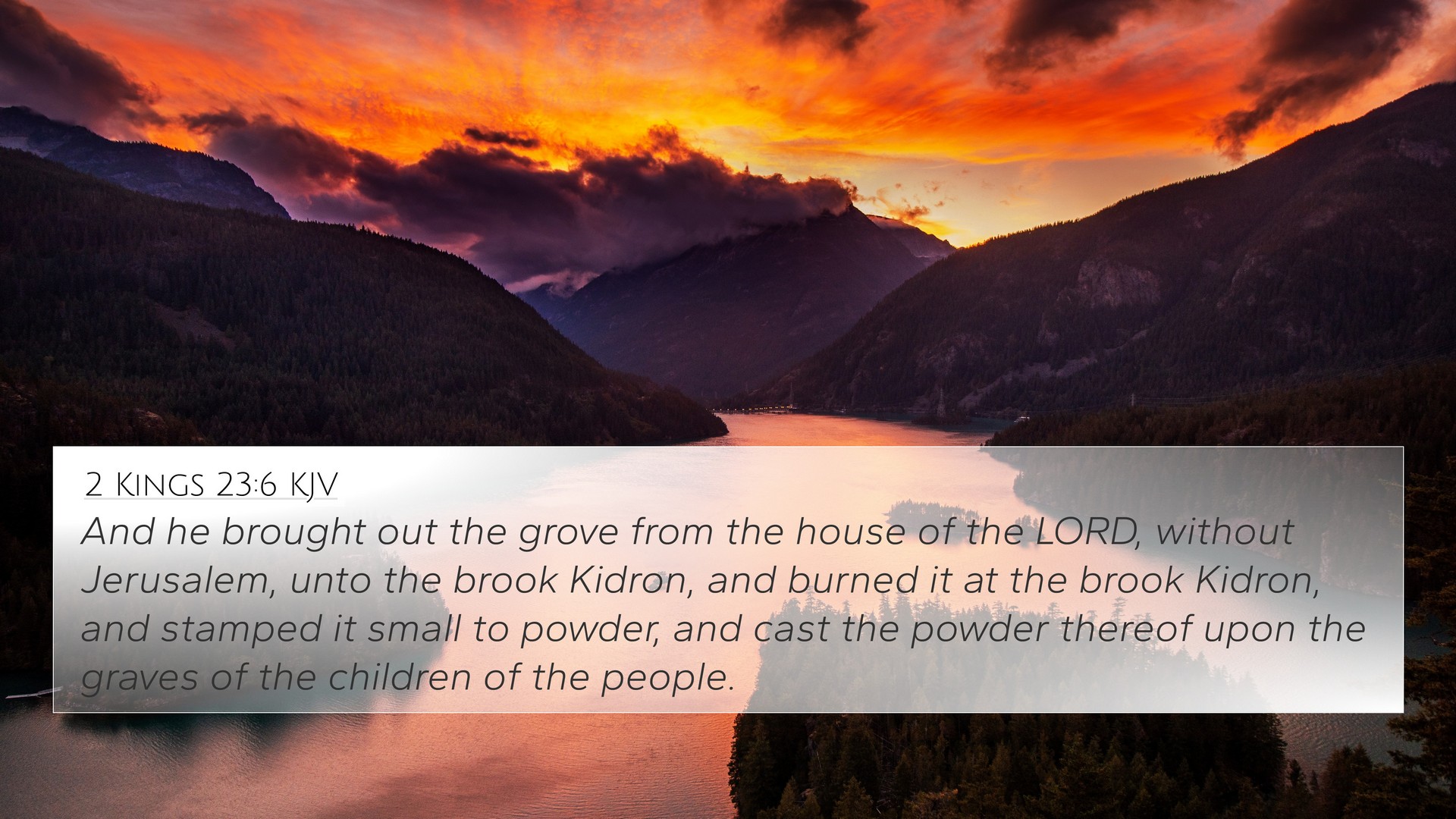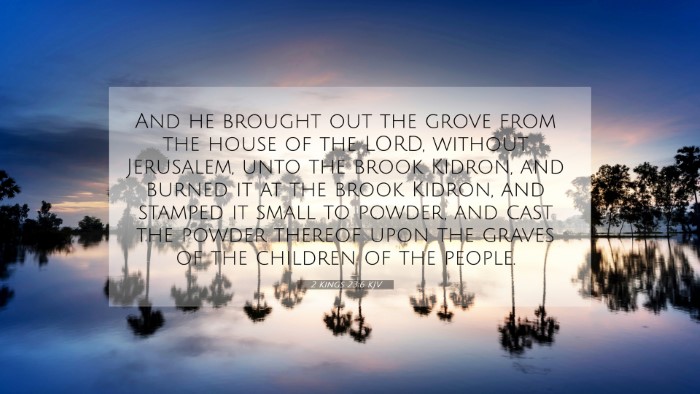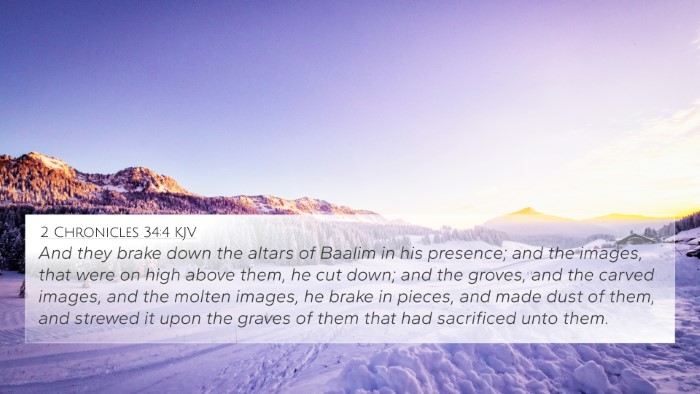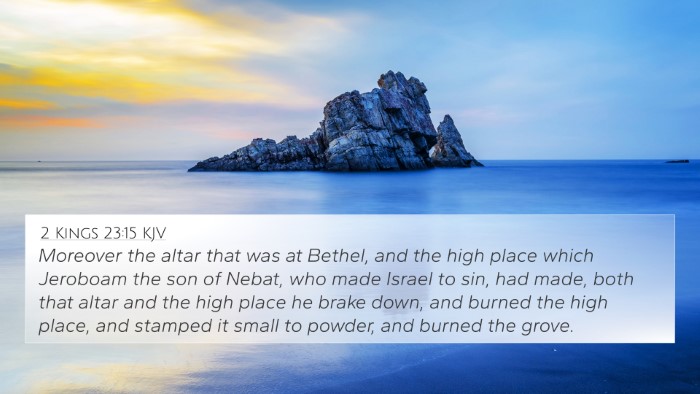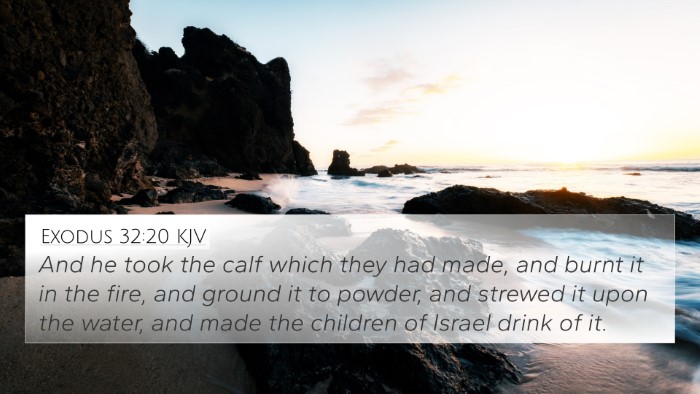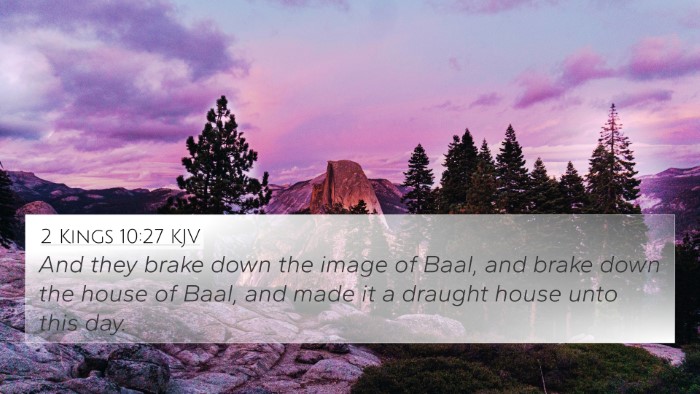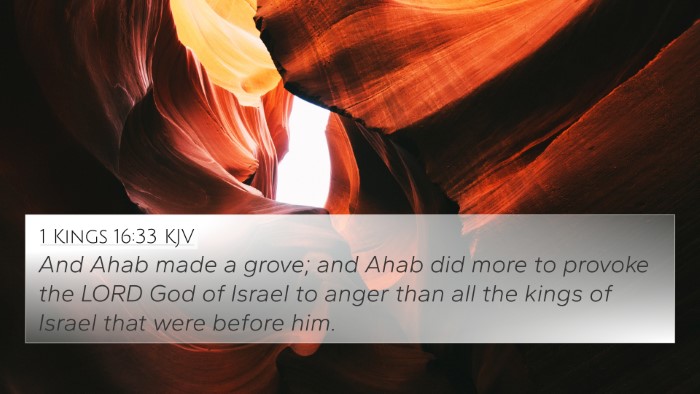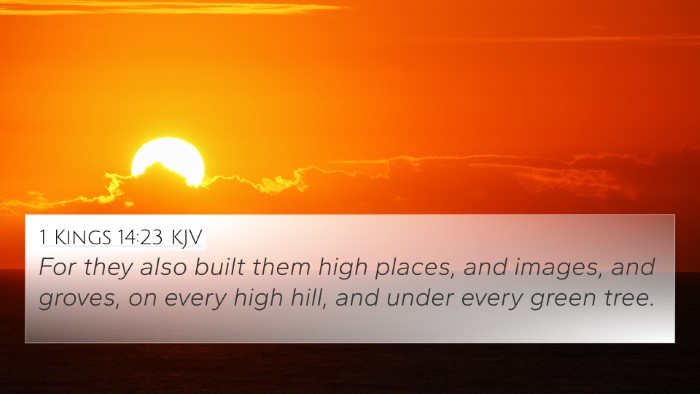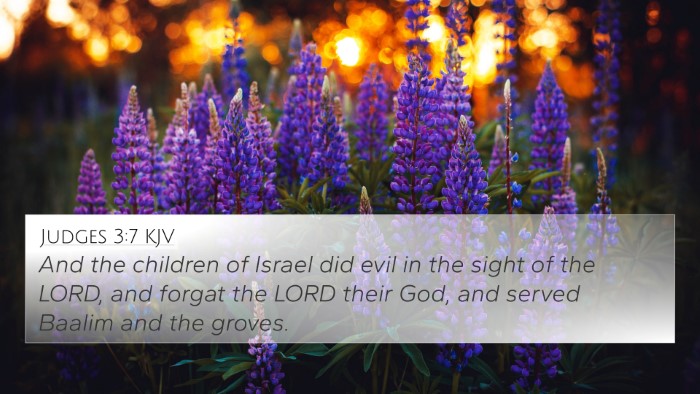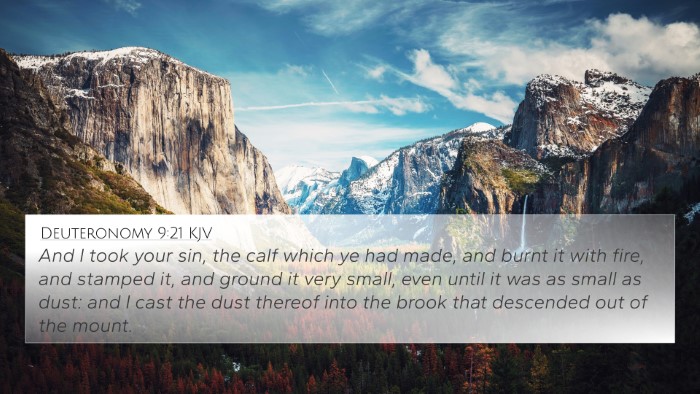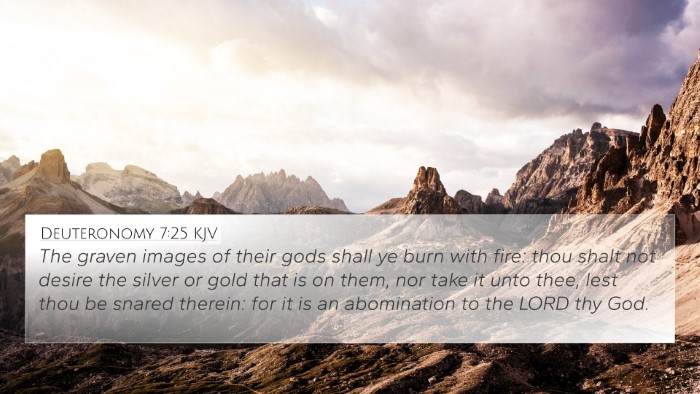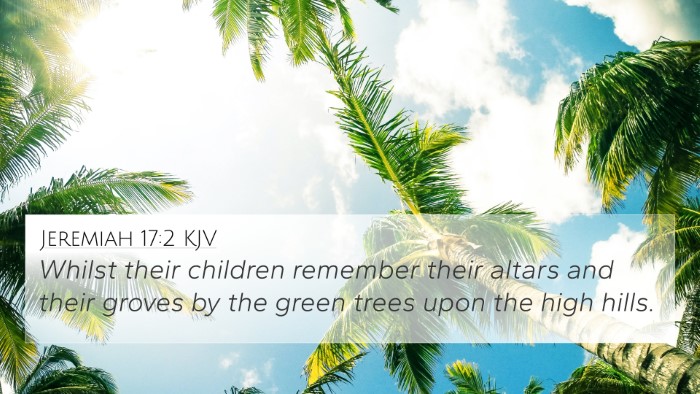Understanding 2 Kings 23:6
Verse: 2 Kings 23:6 states, "And he brought out the grove from the house of the Lord, without Jerusalem, unto the brook Kidron, and burned it at the brook Kidron, and stamped it small to powder, and cast the powder thereof upon the graves of the children of the people."
Summary of Meaning
This verse illustrates King Josiah's fervent commitment to eradicate idolatry in Judah. He removed the sacred grove associated with idol worship from the temple, demonstrating his dedication to restoring proper worship of Yahweh.
Context and Background
The context surrounding 2 Kings 23 revolves around the reign of King Josiah, who sought to reform the cultic practices in Israel following the discovery of the Book of the Law. His actions were part of a larger movement to return the nation to covenant faithfulness.
Historical Significance
Josiah’s reforms were significant, as they aimed to reinstate true worship in a time when false idol worship had proliferated.
Commentary Insights
- Matthew Henry: This commentary emphasizes the idea of thoroughness in Josiah's reforms; it wasn't enough to simply remove idol worship; it required a complete removal of the tools and symbols of that worship, underscoring a total dedication to God.
- Albert Barnes: Barnes highlights the act of burning the grove and scattering its ashes as a symbolic gesture indicating the destruction of false worship. He notes the gravity of treating these objects as deserving of obliteration rather than mere concealment.
- Adam Clarke: Clarke identifies the grove as representing the Asherah poles that were significant in Canaanite worship, demonstrating the importance of the act as a judgment against idolatry and a restoration of correct worship practices.
Bible Verse Cross-References
This verse connects thematically with several passages that parallel the message of destruction of idol worship and the initiative towards the reformation of worship.
- Deuteronomy 12:2-3: Calls for the destruction of false altars and idols.
- 2 Chronicles 34:3-7: Shares a similar narrative of Josiah’s reforms.
- 1 Kings 15:13: Discusses the removal of idols by previous kings of Judah.
- Jeremiah 7:30-31: Describes the abominations practiced in Judah that provoke God’s anger.
- Leviticus 26:30: Warns against worshipping idols and the consequences of such actions.
- Hosea 10:2: Talks about the hypocrisy and insincerity in worship, relating to Josiah’s reforms.
- Isaiah 27:9: Promises that the destruction of idols is a necessary step for restoration.
Connecting Themes
The removal of the grove serves as a pivotal point in Josiah’s reforms, representing a broader theme throughout Scripture concerning the rejection of idolatry:
- Thematic Bible Verse Connections: The act signifies a return to the pure worship of God, which is echoed throughout the Old Testament.
- Inter-Biblical Dialogue: Josiah’s actions resonate with New Testament themes on the worship of God in spirit and truth (John 4:24).
Conclusion
2 Kings 23:6 encapsulates Josiah's zeal for purity in worship, asserting the necessity of removing all traces of idolatry. This verse stands as a firm reminder of the importance of fidelity to God and serves as a touchstone for understanding similar themes in Scripture.
